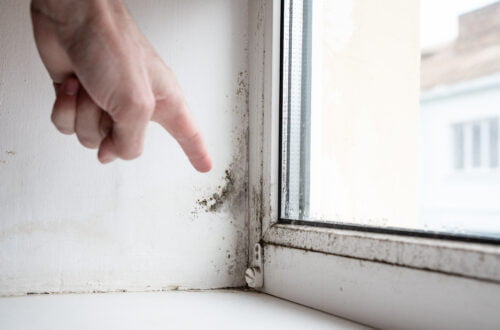How to Prepare for the Next Pandemic
As someone who’s tried every trick in the book to ease stuffy noses and stubborn colds, I can assure you that these shower steamers are a game-changer. Because let’s face it – when your little one is feeling under the weather, trying to convince them to sit still with a tissue pressed against their nose is like attempting to herd cats. But fear not, because with just a few simple ingredients and a sprinkle of creativity, we’ll have you making these shower steamers faster than it takes for your kids’ stuffy noses to clear up. So grab your mixing bowls and prepare for an aromatic adventure as we dive into the world of DIY congestion-busting shower steamers!

Preparing for the Next Pandemic
As I reflect on the lessons learned from the recent pandemic, I realize that preparation is key to facing future outbreaks effectively. First and foremost, staying informed and updated on the latest scientific research regarding viruses and pandemics is crucial. This includes understanding how diseases spread and identifying potential warning signs of a new outbreak. Furthermore, having a well-stocked emergency kit with essential supplies such as non-perishable food, water, medications, and hygiene products can provide a sense of security during uncertain times.
In addition to physical preparation, mental readiness is equally important for coping with the next pandemic. Building strong support networks within your community and engaging in open conversations about contingency plans can help alleviate anxiety when facing an epidemic. Lastly, cultivating healthy habits such as regular exercise, balanced nutrition, and stress-reduction techniques can fortify our immune systems in anticipation of future health crises. With proactive measures in place both physically and mentally, we can navigate through the challenges presented by future pandemics with resilience and unity.
Understanding the Threat of the Next Pandemic
I can’t help but wonder about the next pandemic. The thought of a viral outbreak that could threaten our very existence is both terrifying and fascinating. As I delve into understanding this threat, I realize that it’s not just a matter of if, but when. The interconnectedness of our global society means that the spread of infectious diseases is inevitable, and we must be prepared for the worst.
One fresh insight that strikes me is how modern travel and trade have created an environment ripe for the rapid transmission of pathogens. The emergence of antibiotic-resistant bacteria and the potential for bioengineered viruses also add to the complexity and unpredictability of future pandemics. It’s crucial to recognize that these threats are not confined to distant lands or outdated history books – they are real, imminent dangers that require proactive measures on a global scale.
With this new perspective, I start to see how understanding the threat goes beyond simply anticipating outbreaks; it involves reshaping societal attitudes towards public health infrastructure, international cooperation, and even individual behavior. Instead of being paralyzed by fear, we must leverage our knowledge and resources to mitigate risks while staying vigilant against emerging dangers. Only then can we hope to confront the next pandemic with resilience and unity.
Stocking Essential Supplies Before the Next Pandemic
So, the key to preparation for the next pandemic lies in stocking essential supplies. It’s not just about toilet paper and canned goods; it’s about thinking ahead and considering what would be crucial during a crisis. We need to ensure we have a sufficient supply of medical essentials, such as sanitizers and over-the-counter medications. But don’t forget about the mental health aspect either – having board games, books, and other entertainment options can reduce stress during isolation.
Additionally, stockpiling non-perishable food items like rice, beans, and dried fruits can provide a sense of security when grocery store shelves are empty. Water is also critical; I never realized how quickly one goes through bottled water until it’s impossible to find any at the store. Lastly, maintaining a well-stocked first aid kit is imperative during uncertain times; simple injuries could become a much larger problem if healthcare becomes scarce.
Preparing for emergencies isn’t just about panic-buying; it’s about thoughtful consideration of our needs and minimizing risk in advance. As we’ve learned from recent events, having essential supplies readily available can make all the difference in navigating through challenging times.
Developing a Family Emergency Plan
As someone who has seen the impact of the current pandemic on families, I can’t stress enough how important it is to develop a family emergency plan. The next pandemic may come sooner than we expect, and having a well-thought-out plan can make all the difference. Consider designating specific roles for each family member in case of an emergency, such as a communication leader, resource manager, or medical point person.
Additionally, it’s crucial to discuss evacuation routes and meeting points with your family so that everyone knows what to do in case of an emergency. As part of your plan, make sure to include important contact information for local authorities, healthcare providers and other essential services. Keep in mind that a comprehensive emergency plan should also consider specific needs for children, elderly family members or pets. Remember: preparation is key to staying safe during uncertain times.
Staying Informed and Educated
With technology rapidly advancing and the world becoming increasingly interconnected, we must stay ahead of the curve in understanding potential health risks and global challenges. By consistently seeking out reliable sources of information and staying updated on current events, we equip ourselves with the knowledge needed to make informed decisions for our well-being and that of others.
In this digital age, misinformation spreads like wildfire, so it’s crucial to critically analyze the information we come across. It’s not just about consuming information; it’s also about actively engaging with it. Engaging in meaningful discussions with experts, participating in reputable online forums, or attending webinars are all valuable ways to gain insights from different perspectives. As I strive to remain proactive in my pursuit of knowledge about potential health threats, I find that embracing a mindset of lifelong learning arms me with wisdom and foresight—qualities that will be invaluable when facing future challenges.
Building Resilience Through Health and Wellness
I believe that maintaining good health and wellness is crucial for building resilience, especially with the uncertainty of facing potential future pandemics. A strong immune system and a balanced mind-body connection are essential in preparing ourselves to face such challenges. Incorporating regular exercise, healthy eating habits, and proper stress management techniques can significantly boost our resilience.
Furthermore, cultivating a positive mindset and practicing mindfulness can help us adapt more easily to unexpected disruptions in our lives. By prioritizing self-care and making conscious lifestyle choices, we can increase our capacity to overcome adversity. As we witness the impacts of the last pandemic, it’s become increasingly clear that investing in our health and wellness is not just a personal choice but also a societal responsibility as we prepare for whatever may come next.
Ultimately, by taking proactive steps toward optimizing our physical and mental well-being today, we can be better equipped to face whatever challenges the future may hold. Embracing health-conscious habits not only empowers us individually but also strengthens our collective ability to navigate through uncertain times with strength and resilience.
Final Thoughts: Being Ready for the Next Pandemic
As I reflect on the challenges and lessons learned during the lt pandemic, I can’t help but ponder about our readiness for the next one. It’s essential to acknowledge that this won’t be the last health crisis we face, so it’s crucial to prioritize preparation and prevention.
One important aspect of readiness is fostering a culture of personal responsibility for health and well-being. This includes understanding basic hygiene practices and remaining adaptable in the face of evolving information. Furthermore, we must advocate for sustainable policies that address environmental degradation and its impact on public health – a key factor in preventing future pandemics. Let’s not wait until the next crisis hits; let’s take proactive steps now to ensure better preparedness for whatever lies ahead.







One Comment
Pingback: